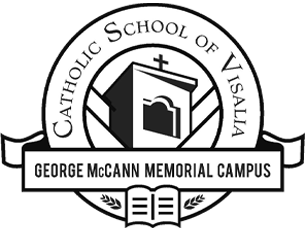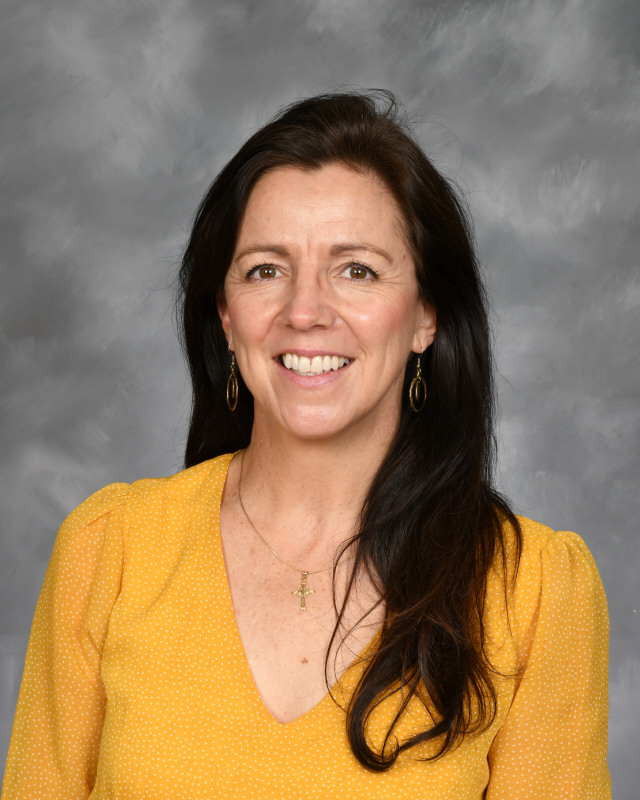
MRS. AVRIL WADDLE - 1st Grade Teacher
Our first-grade students spend a large amount of their class time reading. They learn to recognize common sight words, pattern words and master more phonetically complex elements in new words, with a variety of literary and informational text. By the end of the school year they are reading aloud with accuracy and understanding at a first-grade level, or above. The students learn to write in complete sentences with correct capitalization and punctuation. Their writing covers narratives, opinion pieces, poetic and informational texts.
In math they learn strategies for 2-digit addition and subtraction problems up to 20. They know how to count, identify and write to 120, skip count by 2, 5 and 10, and have a knowledge of place value (ones, tens, etc.). First graders also learn how to sort and classify 2 and 3-dimensional shapes, tell time to the nearest hour and half hour, write the date and read a calendar.
Religion is at the heart of our curriculum and incorporated throughout the day. As students learn about the world, and their place in it, first graders start a journey as lifelong learners. They learn about God, their Creator, loving Father, and Jesus, His Son, and the gifts of the Holy Spirit (the Holy Trinity). First graders learn several prayers, Church doctrine through Bible stories and parables, and who the Holy Family is, as well as follow the Liturgical calendar.
In social studies the students develop a basic understanding of civics, economy, history and geography. We have fun getting to know the world and the people in it. First graders make a presentation about children in a country of their choice. The science curriculum encompasses health and safety for first graders. Also covered are physical, earth, life, and environmental sciences. We incorporate experiments to enhance their knowledge of matter by making bubbles, watching candy dissolve and make ice-cream.
First graders learn to work independently for short periods of time in all subjects. They can also have a conversation about another person’s situation and point of view. They learn to be a good listener, strive to excel, show respect for the less fortunate by participating in acts of charity with food drives for the Bethlehem Center and develop their Christian morality by respecting others and living in accordance to God’s way.
Our first-grade students spend a large amount of their class time reading. They learn to recognize common sight words, pattern words and master more phonetically complex elements in new words, with a variety of literary and informational text. By the end of the school year they are reading aloud with accuracy and understanding at a first-grade level, or above. The students learn to write in complete sentences with correct capitalization and punctuation. Their writing covers narratives, opinion pieces, poetic and informational texts.
In math they learn strategies for 2-digit addition and subtraction problems up to 20. They know how to count, identify and write to 120, skip count by 2, 5 and 10, and have a knowledge of place value (ones, tens, etc.). First graders also learn how to sort and classify 2 and 3-dimensional shapes, tell time to the nearest hour and half hour, write the date and read a calendar.
Religion is at the heart of our curriculum and incorporated throughout the day. As students learn about the world, and their place in it, first graders start a journey as lifelong learners. They learn about God, their Creator, loving Father, and Jesus, His Son, and the gifts of the Holy Spirit (the Holy Trinity). First graders learn several prayers, Church doctrine through Bible stories and parables, and who the Holy Family is, as well as follow the Liturgical calendar.
In social studies the students develop a basic understanding of civics, economy, history and geography. We have fun getting to know the world and the people in it. First graders make a presentation about children in a country of their choice. The science curriculum encompasses health and safety for first graders. Also covered are physical, earth, life, and environmental sciences. We incorporate experiments to enhance their knowledge of matter by making bubbles, watching candy dissolve and make ice-cream.
First graders learn to work independently for short periods of time in all subjects. They can also have a conversation about another person’s situation and point of view. They learn to be a good listener, strive to excel, show respect for the less fortunate by participating in acts of charity with food drives for the Bethlehem Center and develop their Christian morality by respecting others and living in accordance to God’s way.


